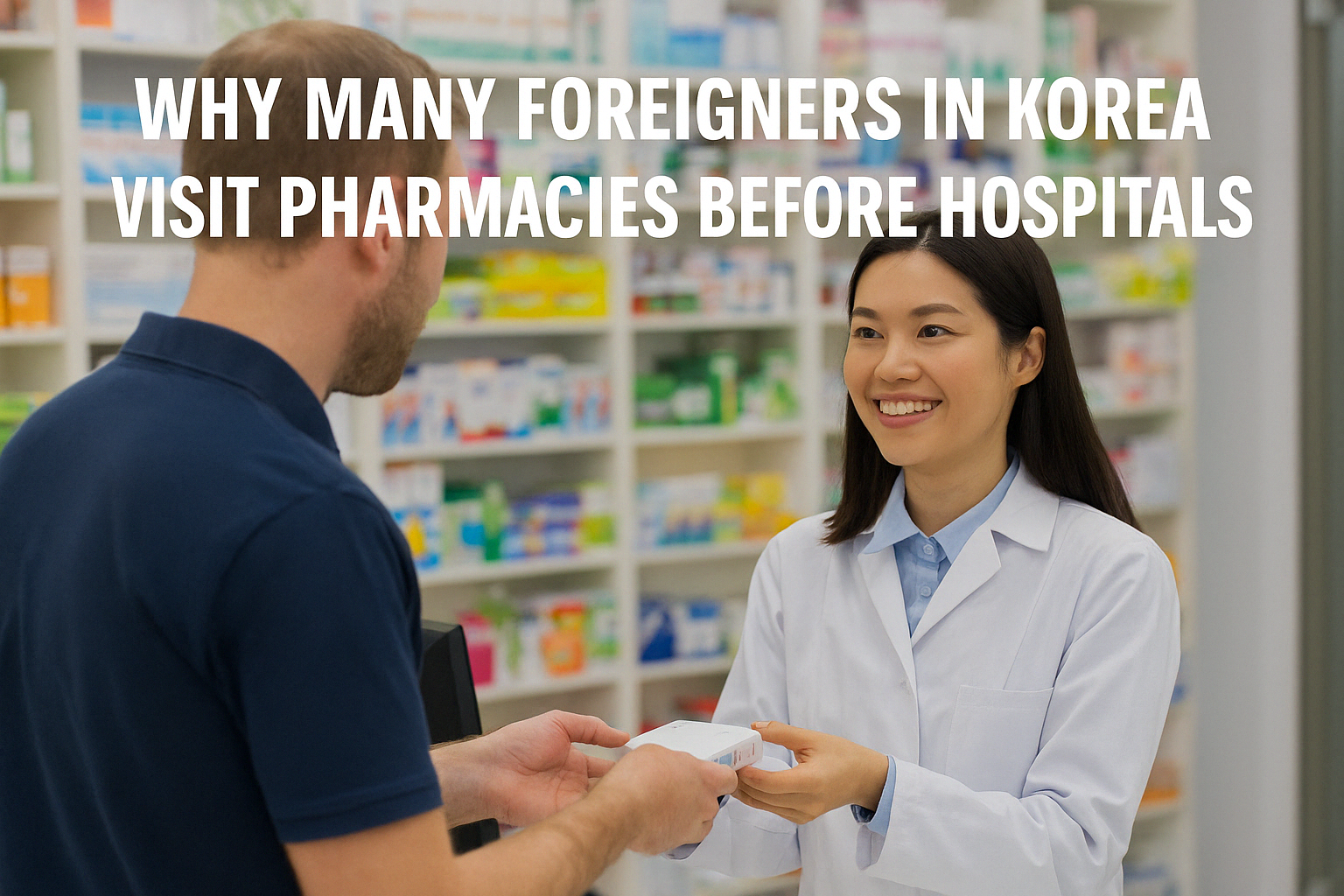Subtitle: OTC Medications, Herbal Remedies, and Skincare Products Foreigners Love
If you’re new to Korea, going into a pharmacy (약국) can feel intimidating. Most pharmacists don’t speak English, many products lack translations, and you might wonder: “Can I even buy this without a prescription?”
The good news? Korean pharmacies offer a wide range of over-the-counter (OTC) medications and wellness products—many of which are affordable, effective, and accessible without any ID or health insurance.
This guide breaks down what foreigners can buy, what actually works, and how to navigate the system easily—even without knowing Korean.
1. Pain Relievers – Korea’s Answer to Tylenol & Advil
- 타이레놀 (Tylenol)
Same name, same ingredient (acetaminophen). Easy to find at any pharmacy or convenience store. - 게보린 (Geworin)
Korea’s popular headache pill—includes caffeine and pain relievers. Works fast. - 이부프로펜 (Ibuprofen)
Usually sold under names like Brufen or generic ibuprofen. Ask for “이부프로펜”.
Tip: Say the name directly or write it on your phone to show the pharmacist.
2. Cold & Flu Medications – What to Buy Without a Doctor
- 판콜에스 (PanCold-S)
Popular cold medicine. Handles stuffy nose, sore throat, and mild fever. - 콜대원 (Coldaewon)
Great for children. Liquid type. Comes with measuring cup. - 청심환 (Cheongsimhwan)
Herbal calming remedy often used for nervous tension and mild anxiety during illness.
Important: Most Korean cold meds combine multiple ingredients. If you’re sensitive, ask for single-ingredient options.
3. Digestive & Stomach Aids – Feel Better Fast
- 베아제 (Bearse)
Digestive enzyme tablet for bloating and heaviness after meals. - 훼스탈 (Festal)
Another enzyme-based option. Comes in chewable tablets. - 까스활명수 (Kgas Hwalmyungsoo)
Liquid herbal medicine for indigestion and gas. Tastes strong but works fast.
Tip: Say “소화제 주세요” (Please give me digestive medicine).
4. Skincare & First Aid – What You Didn’t Expect in a Pharmacy
- 마데카연고 (Madeca Ointment)
Healing cream used for cuts, burns, and even acne scars. Contains Centella Asiatica. - 후시딘 (Fucidin)
Antibiotic ointment for minor wounds. No prescription needed. - 벅스킬 (BugsKill Spray or Patch)
For insect bites and itch relief. - 제놀파워 (Zenol Power Patch)
Cooling or heating patch for back pain, neck stiffness, etc.
Bonus: Most pharmacies carry affordable sunscreen, lip balm, and K-beauty facial mists.
5. Sleep, Stress, and Herbal Remedies
- 청심환 (Cheongsimhwan)
Traditional Korean medicine for anxiety and nervousness. Calms without strong drowsiness. - 쌍화탕 (Ssanghwatang)
Herbal tonic used for fatigue recovery. Often served hot in packs or bottles. - 우황청심원 (Uwhang Cheongsimwon)
Emergency pill used for panic, dizziness, and emotional shock. Popular with exam students and seniors.
Warning: These are herbal, but potent. Ask pharmacist about dosage if unsure.
6. How to Ask for What You Need – Even Without Korean
3 ways to make it easy:
- Use the product name: Just say “타이레놀 주세요” (“Tylenol, please”)
- Show a picture: Use Papago or Google Images
- Write on your phone: Type the name in Korean and show it
Bonus phrases:
- 약 주세요 = Please give me medicine
- 두통약 = headache medicine
- 감기약 = cold medicine
- 소화제 = digestive aid
- 연고 = ointment
- 반창고 = band-aid
7. Where to Buy – Not Just Pharmacies
- Convenience stores: Tylenol, painkillers, energy drinks, cold medicine
- Duty-free shops at airports: Branded Korean herbal supplements
- Online (Coupang, Gmarket): Some OTC items available without ID (especially skincare or health foods)
- Traditional Markets: For herbal teas, tonics, and handmade remedies
Final Advice from Goldnuri
Korean pharmacies aren’t scary—they’re goldmines of affordable health solutions.
By learning just a few keywords and preparing screenshots, you can save money, skip the hospital, and handle minor health issues on your own.
The real survival trick is knowing what to ask, and asking smart.
Coming Up Next
Top 5 Korean Supplements That Foreigners Actually Buy (And Reorder)
→ A breakdown of the most trusted Korean vitamins, digestion aids, and stress-relief formulas people keep coming back for.
Internal Links
- Previous Post: Smart Living in Korea: Essential Apps and Hacks
- Next Post: (Top Korean Supplements – Coming Soon)

